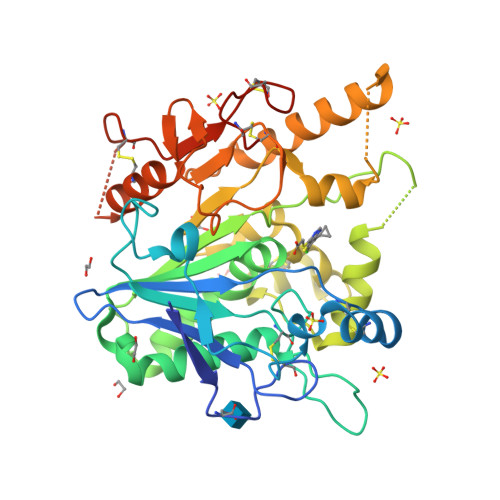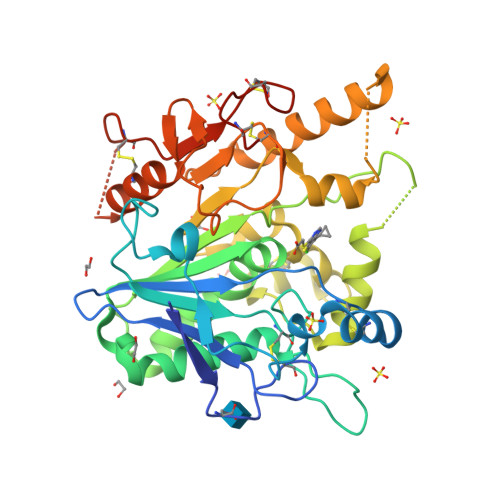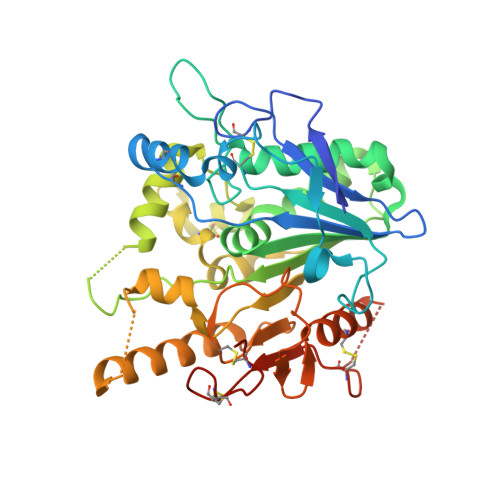Scaffold-hopping identifies furano[2,3-d]pyrimidine amides as potent Notum inhibitors.
Atkinson, B.N., Steadman, D., Mahy, W., Zhao, Y., Sipthorp, J., Bayle, E.D., Svensson, F., Papageorgiou, G., Jeganathan, F., Frew, S., Monaghan, A., Bictash, M., Jones, E.Y., Fish, P.V.(2020) Bioorg Med Chem Lett 30: 126751-126751
- PubMed: 31862412
- DOI: https://doi.org/10.1016/j.bmcl.2019.126751
- Primary Citation of Related Structures:
6T2H, 6T2K - PubMed Abstract:
The carboxylesterase Notum is a key negative regulator of the Wnt signaling pathway by mediating the depalmitoleoylation of Wnt proteins. Our objective was to discover potent small molecule inhibitors of Notum suitable for exploring the regulation of Wnt signaling in the central nervous system. Scaffold-hopping from thienopyrimidine acids 1 and 2, supported by X-ray structure determination, identified 3-methylimidazolin-4-one amides 20-24 as potent inhibitors of Notum with activity across three orthogonal assay formats (biochemical, extra-cellular, occupancy). A preferred example 24 demonstrated good stability in mouse microsomes and plasma, and cell permeability in the MDCK-MDR1 assay albeit with modest P-gp mediated efflux. Pharmacokinetic studies with 24 were performed in vivo in mouse with single oral administration of 24 showing good plasma exposure and reasonable CNS penetration. We propose that 24 is a new chemical tool suitable for cellular studies to explore the fundamental biology of Notum.
Organizational Affiliation:
Alzheimer's Research UK UCL Drug Discovery Institute, University College London, Cruciform Building, Gower Street, London WC1E 6BT, UK.




















